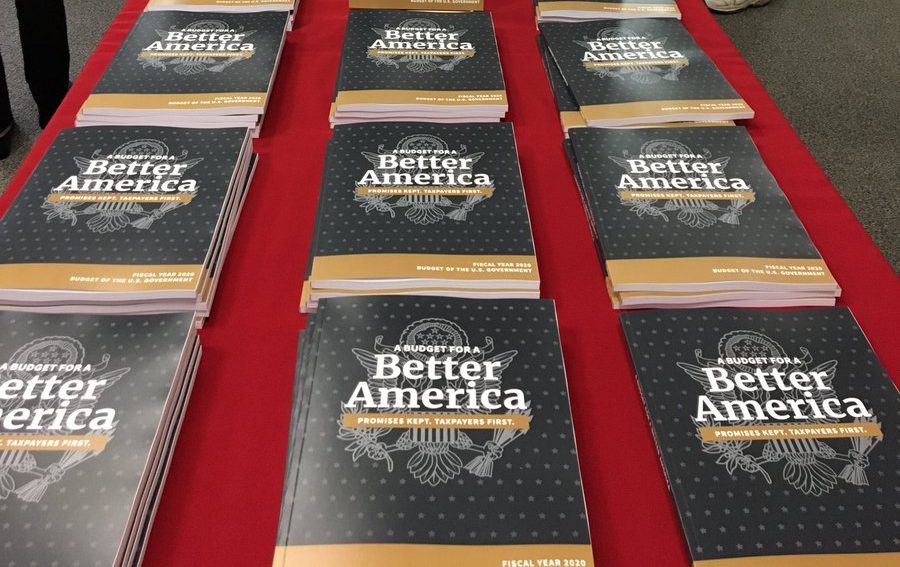Many of the policies peddled by the Trump administration sound like a broken record. A case in point is its treatment of the Legal Services Corporation (LSC), a publicly funded nonprofit established by Congress in 1974 that helps to ensure that low-income people have civil legal representation.
Trump’s proposed Financial Year 2020 budget, released March 18, marks the third year in which his administration has sought to defund the organization—one that itself funds 132 legal aid organizations serving, among others, poor and low-income people who use drugs, people living with HIV/AIDS, and queer and trans people.
On April 11, the National Center for Lesbian Rights (NCLR) and over 40 other LGBTQ organizations sent a letter to Senate and House Appropriations Committee leadership, urging them to continue funding LSC, and not approve the proposed appropriation for $18.2 million—“to be used only for the closure of the Legal Services Corporation.” Their letter follows similar appeals made by individual organizations, like the National Legal Aid and Defense Society, back in March.
“We ask that Congress recognize the critical need for affordable legal services and acknowledge that ensuring access to these services reflects our country’s deeply held values and commitment to equal justice under law,” write the organizations.
Tyrone Hanley, the senior policy council at NCLR, spells out that “eliminating LSC would leave millions more low-income people, LGBT people, people using drugs, people with HIV/AIDS without an avenue to seek justice.”
NCLR primarily aims to do impact litigation, so ends up referring around 300 people per year who are seeking direct representation and are low-income to legal aid organizations funded by LSC. “We want to help everyone, but in many cases we just don’t have the capacity,” says Hanley.
That’s why the NCLR letter endorsed the LSC’s budget request of $593 million—more than last year’s request. LSC has bumped up its request by $28.2 million because even with current funding levels, legal aid organizations are unable to serve everyone seeking representation. According to Kathryn Fanlund, LSC’s communications manager, “legal aid providers must regularly turn away at least half of the eligible clients seeking their help”—a shortfall that LSC has described as the “justice gap,” or “the difference between the civil legal needs of low-income Americans and the resources available to meet those needs.”
“Eliminating LSC funding would effectively eliminate civil legal aid in some states and diminish it in every state,” writes Fanlund, “with a resulting loss of confidence in the fairness of the justice system for those who cannot afford to pay for legal assistance.”
And this will have detrimental affects for people living with HIV and who use drugs. “Health issues and legal problems are frequently intertwined,” Fanlund tells Filter in an email. “LSC-funded legal aid orgs help members of their communities with matters that go to the very heart of their wellbeing and security–employment and financial and housing problems.”
In a 2017 survey conducted by the LSC, over 94 percent of responding grantees reported providing legal services to people who use opioids. In April 2018, LSC created an Opioid Task Force to collaborate with public health officials from a legal-aid perspective in their joint mission to tackle the overdose crisis.
As Fanlund explains, legal aid organizations provide representation for clients of “public health officials [who] have begun to recognize that a comprehensive, multi-pronged approach is needed for people facing health issues and/or substance use disorders”
Even while facing a hostile presidential administration, LSC remains hopeful that Congress will continue to fund its operations.
“I believe that the bipartisan support LSC has enjoyed in Congress for almost 45 years will continue long into the future,” said LSC President Jim Sandman. “We are grateful that Congress recognizes LSC’s vital importance in ensuring equal access to justice and has increased our funding in each of the last two fiscal years.” Fanlund noted that Congress authorized the largest increase in LSC’s budget for the current fiscal year’s budget since FY 2010.
Although Fanlund reports that LSC’s “leadership remains confident [that they] will continue to enjoy this bipartisan support,” Hanely reiterates, after three years of defunding attempts, that the problem comes down to the fact that “We have a president who doesn’t believe in legal aid.”
Photograph: US Government Publishing Office via Twitter, modified





Show Comments